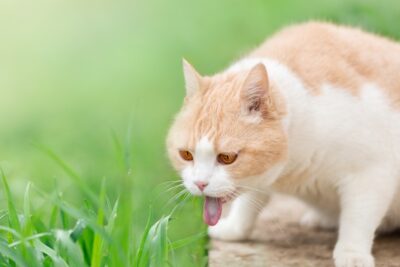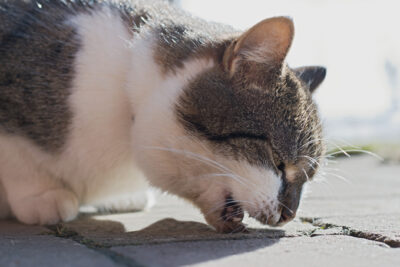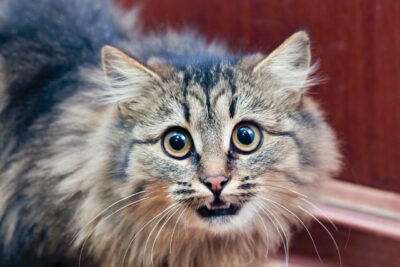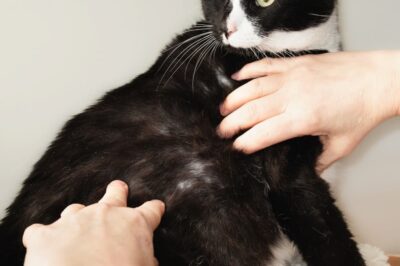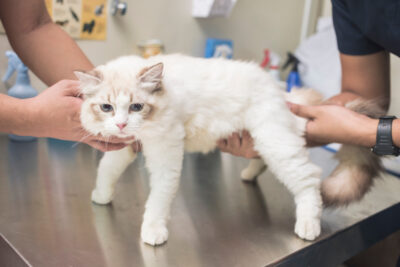Fading Kitten Syndrome
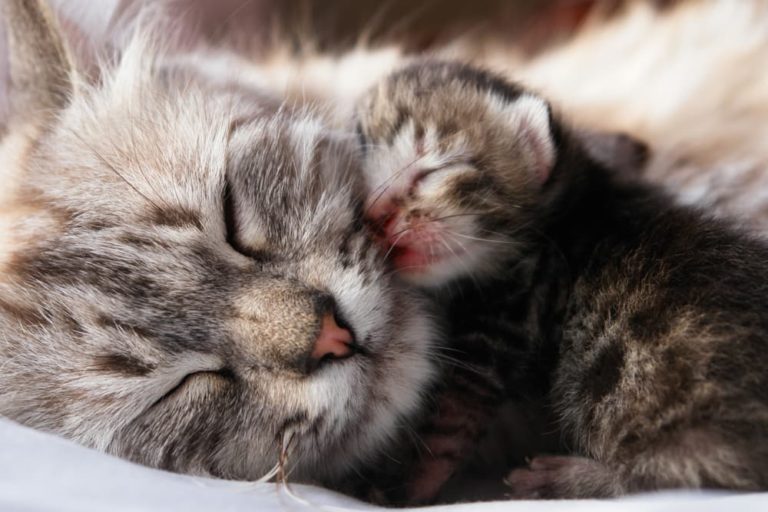
Caring for a mother cat (also known as a queen) and her babies can feel so special to pet parents. The tiny kittens are adorable and fragile, and most mother cats are excellent caregivers.
The sad reality of raising kittens from early days, however, is that approximately 15 percent of kittens won’t make it. This means 85 percent will make it though, and treatment is possible if your kitten is in trouble.
It’s important to become familiar with fading kitten syndrome. If any kitten begins to show symptoms of illness, they need treatment right away.
What is Fading Kitten Syndrome?
Fading kitten syndrome is a general term that describes illness and death in feline neonates. Any kitten from newborn to 4 weeks old is called a neonate. Fading kitten syndrome refers to neonates that become sick and – over hours to days – decline in health until death.
People mistakenly use the phrase fading kitten syndrome to indicate an ill kitten but not necessarily one that dies. Illnesses that can cause fading kitten syndrome have treatment if provided early on.
What Causes Fading Kitten Syndrome?
There are many potential causes of fading kitten syndrome:
Maternal causes. Many issues with the queen will lead to the death of her kittens. Difficulty giving birth, illness, malnutrition, parasites, trauma, or a lack of milk production can cause fading kittens.
Congenital abnormalities. These are conditions that the kitten was born with. Congenital issues account for up to 20 percent of all deaths in neonates and are caused by genetics, or sometimes trauma or illness that occurred in the mother cat while she was pregnant. Examples include cleft palate, when a hole is present in the roof of the mouth, and heart defects.
Low birth weight. Kittens born with a low weight at birth do not have as many reserves to survive illness or rough environmental conditions and may be weak. On average, kittens should weigh 90-110 grams at birth, but kittens that weigh less than 75 grams at birth have a higher chance of passing away.
Neonatal isoerythrolysis. Kittens that are born with type A blood to a queen with a different blood type (type B) have an immune system issue. The queen passes antibodies when nursing that destroy the kitten’s red blood cells.
Infectious diseases. Bacteria can cause life-threatening infections that are introduced by the birthing process or by many illnesses that affect the guts or the lungs. Viruses are common in kittens, especially herpesvirus and calicivirus that cause upper respiratory disease. Protozoal infections also occur such as toxoplasmosis.
Parasites. Parasites found inside the body are common, including roundworms, hookworms, and coccidia. Parasites like fleas or ticks can cause significant blood loss in tiny kittens.
Environmental issues. An ideal environment for a mother and her kittens should be around 70-75 degrees Fahrenheit, but very cold or very hot environments can cause a kitten to fade. A dirty environment or toxins would affect the kitten as well.
Fading Kitten Syndrome Symptoms
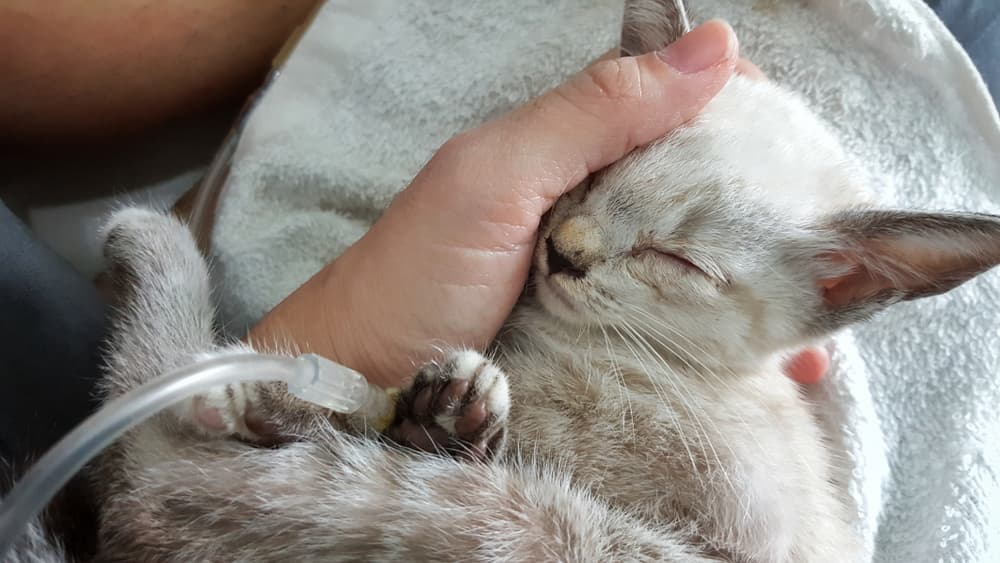
The symptoms of fading kitten syndrome are vague. Since the syndrome can be due to a wide variety of issues, it is not easy to tell which symptoms each kitten will experience. However, general weakness, low appetite, decreased activity, and/or feeling cool to the touch are common symptoms.
Other symptoms may include:
- Weight loss or lack of weight gain
- Excessive crying
- Sleeping separately from the other kittens
- Cannot right herself if placed upside down (3 days of age and older)
- Pale gums (i.e. appear white instead of pink)
- Distended belly
- Difficulty breathing (open mouth, blue-tinged gums and/or tongue, gurgling sounds)
- Icterus (yellow discoloration to the skin and mouth)
- Blood in the urine
- Eye or nose discharge
- Vomiting
- Diarrhea
- Seizures
Diagnosing Fading Kitten Syndrome
Veterinarians diagnose fading kitten syndrome when a kitten less than 4 weeks old passes away. To determine the cause, it is important to examine the kitten thoroughly for any abnormalities. Symptoms like vomiting or diarrhea would lead to testing the feces for parasites. A small amount of blood may be used to test for low red blood cells (anemia) and low blood sugar, a common finding in sick kittens.
The queen should be thoroughly examined as well when a kitten is not doing well. Veterinarians may perform additional testing on the queen such as a fecal test for parasites.
How to Treat Fading Kitten Syndrome

There are 3 types of therapy required to stabilize a kitten that is fading:
Warmth. Many fading kittens are too cold. At home, be sure to provide a safe heat source approved for kittens such as a microwaveable heating disc under a towel. Always provide space without a heat source for the queen or kittens to cool off.
Sugar. Any kitten that is fading should have either corn syrup or maple syrup applied to their gums immediately. Do not use light syrup – the more sugar, the better. The goal is not for the kitten to swallow the syrup but to rub it across the gums. Water with sugar added will not work as most kittens cannot absorb anything in their guts when they are cold and sick.
Fluids. Kittens have a higher need for fluids and are more easily dehydrated than adults. While kittens that are fairly healthy may do well when given fluids by mouth, sicker kittens require fluids under the skin or through the veins (i.e. through a catheter).
If your kitten is fading, immediately call your veterinarian after providing warmth and sugar. She will be able to provide advice for treatment at home or determine if the kitten needs to be seen by the veterinarian. Causes of fading kitten syndrome can worsen quickly, and many conditions require medical treatments.
Attempting to force-feed kittens is NOT recommended without veterinary guidance. Not only is there a chance that the kitten will accidentally breathe in the liquid and develop pneumonia, but also, cold kittens cannot absorb fluids or nutrients through the guts. If neonates are fed formula when cold, it will rot in their guts and not much will be absorbed.
Once your veterinarian has examined and performed some testing on the kitten, treatment may be provided. Serum may be injected from a donor cat to replace the antibodies, or immune system protection, needed in the first day of life. Oxygen may be provided if respiratory issues like pneumonia occur. Antibiotics may be useful, as well as medications that kill parasites. If blood loss from parasites or neonatal isoerythrolysis is severe, a blood transfusion may be recommended.
Prognosis for Fading Kitten Syndrome Cure
Technically fading kitten syndrome is deadly, as the syndrome is defined as kittens that have passed away. However, many kittens that are becoming ill respond well to treatment.
Fading kittens become progressively more ill over mere hours or days. Prognosis is better the sooner that treatment is sought. Prognosis is worse if the kitten had a low weight at birth (<75 grams) or has congenital abnormalities.
Most deaths in neonates occur in the very first week of life, so if your kitten is older than 1 week, chances are higher she will survive.
How to Prevent Fading Kitten Syndrome

There are several things that can be done to prevent this syndrome:
Veterinary check-up for the queen. Provide veterinary care to the queen prior to giving birth or have her examined as soon as possible. Parasites can be treated, and other issues would be detected that prevent the queen from caring for her kittens.
Monitor kittens daily. Weigh each kitten daily and record the weight in grams. If a kitten has not gained any weight in 24 hours, watch very closely for symptoms. If another 24 hours passes without weight gain, the kitten should be examined by a veterinarian. If any symptoms are noted in any kitten, seek veterinary advice right away. Oftentimes, illness is very subtle in the beginning but kittens need fast treatment to pull through.
Deworm kittens every 2 weeks. Starting at 2 weeks of age, liquid dewormer can be given by mouth every 2 weeks to rid the kitten of parasites.
Ensure the queen has received her preventives. Flea preventive on the queen, deworming, and vaccination will keep the queen and thus the kittens healthy.
Maintain a clean, controlled environment. Ability to control temperature is ideal. Keep other cats, dogs, and other animals away from the queen and kittens. Ensure no toxins are present, and that the kittens do not have the ability to fall off a surface.
